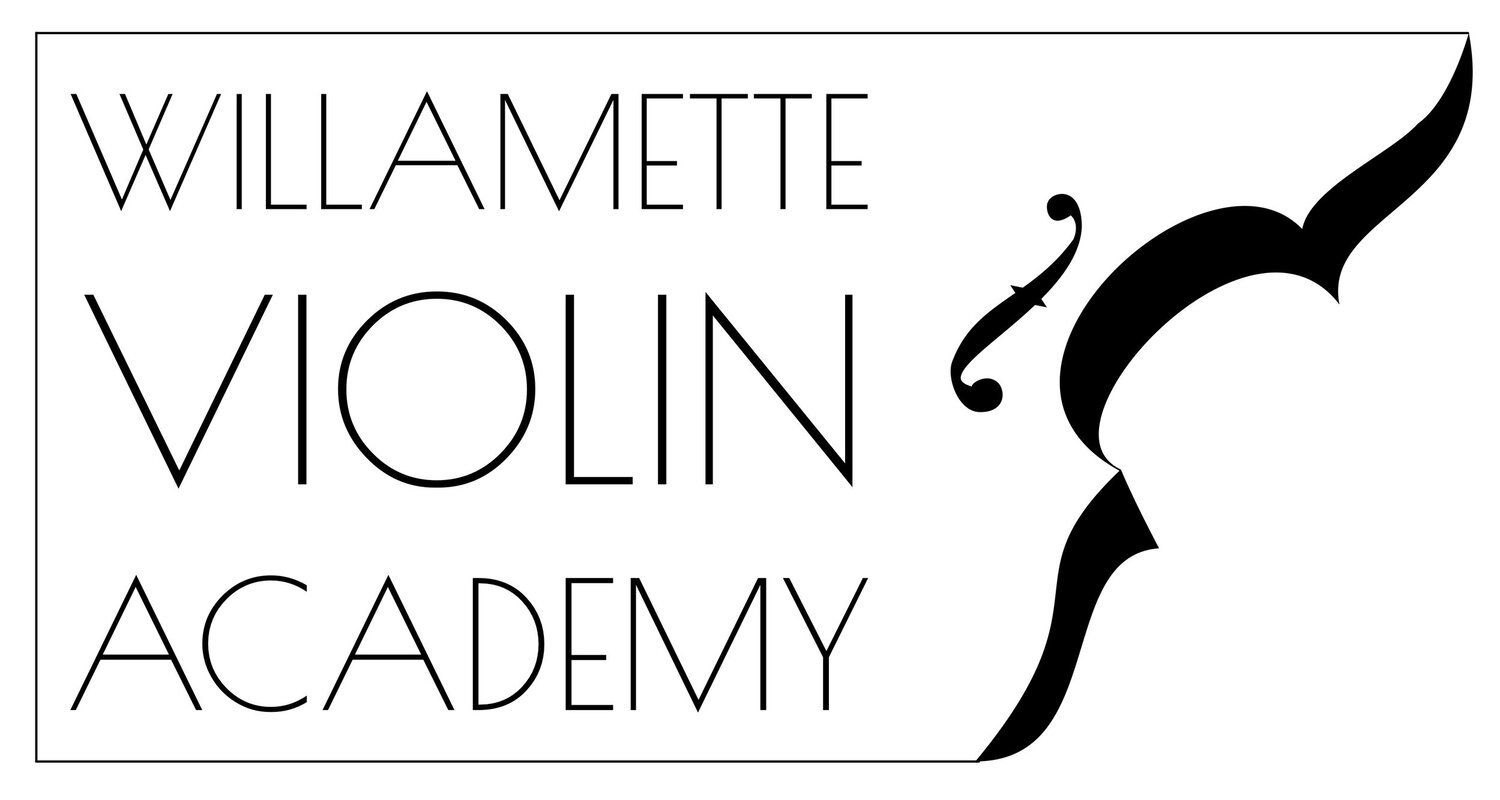Why a Suzuki Education?
The Suzuki Method offers every child the opportunity to learn to play music beautifully and to enjoy learning with their parents and their peers. The social and immersive aspects of Suzuki education create the value of Suzuki education. Weekly individual and group lessons, daily listening and practice, and frequent performances create a rich musical life for children and their families.
Suzuki's Premise
Shin’ichi Suzuki based his pedagogical approach on a single observation: Children develop native-language fluency easily and enthusiastically. Second-language learning, however, is characterized by struggle and limited success. Children are not thought of as "talented" for learning to speak. Rather, the child's environment is responsible for the child's ability. Suzuki demonstrated that any child could become an excellent musician, if the educational conditions mimicked native-language acquisition. By beginning education as early as possible, using immersive and social learning environments, and parental encouragement, Suzuki’s approach has produced some of the world’s finest musicians for nearly a century.
The Elements of Suzuki Education
Early Beginning: Suzuki students begin formal training between two and six years of age, when the brain is highly plastic.
Whole-Child Education: Grit, responsibility, enthusiasm, leadership, bravery, love of learning, and social intelligence must be developed in order for children to achieve musically.
Step-by-Step Mastery and Repetition: Babies begin to speak with the easiest syllables. They attempt, then master, then repeat those syllables extensively before advancing. Suzuki teachers introduce one skill at a time, and students master and assimilate each skill before advancing. Because extensive repetition is required before advancement, there is no need for remediation or unproductive struggle.
Shared Repertoire: Just as English vocabulary is common to all anglophones, Suzuki students memorize a common body of musical literature. This is unique to the Suzuki approach! Any two Suzuki students from across the globe can spontaneously perform, practice, or “jam” together (and they do, all the time!).
Review: As humans acquire new vocabulary, old vocabulary is not discarded. We must maintain our simple vocabulary, because we scaffold complex concepts/words onto their simpler counterparts. It is a unique feature of the Suzuki approach that students review and maintain their entire repertoire throughout their course of study.
Parent involvement: Parental involvement is a cornerstone of the Suzuki approach. Because the child has lessons only once or twice a week, parents are educated that they must be the “home teacher,” and that they must nurture the child’s musical development on a daily basis at home. As the child grows, the responsibility for daily practice shifts to the child.
Playing by Ear and Delayed Reading: Language is learned by ear before reading develops, and Suzuki students learn music in the same order. The youngest Suzuki students learn by imitation (rote learning), and they quickly become able to aurally decode and perform any tune they hear, independently. Once this foundation is established, note reading is introduced (This normally coincides with children beginning to read English).
Social Settings: Motivation to learn language grows from a desire for social inclusion. Suzuki students participate in weekly group lessons, regular group performances, attendance at Suzuki summer camps, and Suzuki social gatherings, where children informally perform for parents and friends. Suzuki social life is rich for both parents and children, and is essential for motivation and successful learning.
Positive Environment: Children develop language skills without self-consciousness or fear, because they receive positive attention for every effort to speak. Suzuki education depends on a positive atmosphere, patterned after the encouraging dynamic between a parent and newly verbal child. Every effort is met with encouragement from parent and teacher, and children are never criticized for unsuccessful efforts.
Listening to Reference Recordings: Children hear their native languages constantly and casually, and Suzuki recreated this environment by requiring daily listening to the Suzuki repertoire and other fine music.
-Dr. Kara Eubanks
